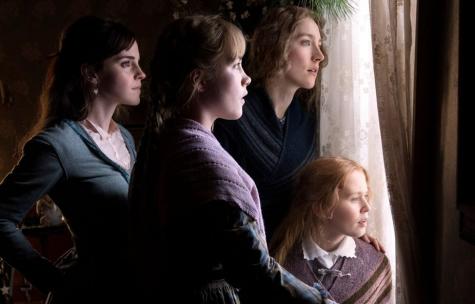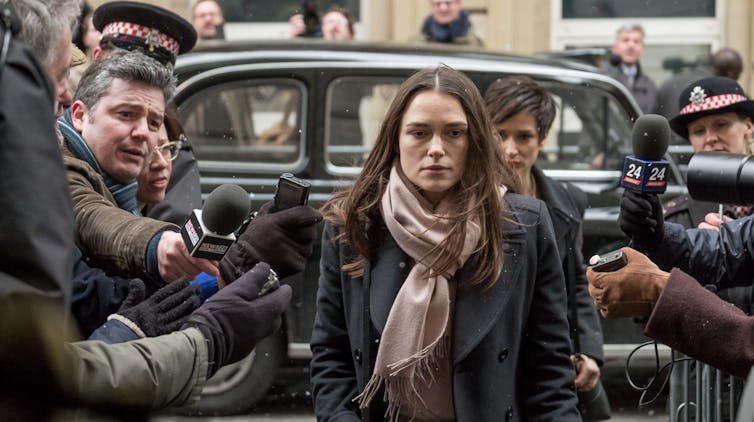Surviving street prostitution: two new films on harrowing realities for women in America
Fresh from its success at Sundance, where the British filmmaker Kim Longinotto picked up the World Cinema Documentary Directing Award, Dreamcatcher has had its UK premiere at the Glasgow Film Festival.
A devastating but ultimately hopeful film, Dreamcatcher has the extraordinary Brenda Myers-Powell at its heart. Myers-Powell runs the Dreamcatcher Foundation, working with prostituted women and at-risk girls in Chicago. She offers them unconditional and non-judgemental support, drawing on her own experiences with drugs and prostitution.
Myers-Powell’s story is extraordinary, as is her lack of bitterness towards those who abused her. Indeed she now works with Homer, a former pimp, in the Dreamcatcher Foundation. Her one goal is to support women: Homer’s redemption is as important as her own in this context, as it enables others to understand the system from the inside.
Dreamcatcher’s message
Longinotto’s unstaged observational style is in keeping with her subject. It is an intimate portrait in which the broader social and political context that shapes these women’s lives is left implicit. Even so, the film unavoidably connects with wider debates. For instance while Myers-Powell and the women she works with have been criminalised, Homer’s record is clean.
The film quietly but powerfully makes the case for the decriminalisation of women in prostitution. But it leaves no doubt that prostitution is an abusive system – a point made chillingly apparent in the opening minutes as Myers-Powell drives around night-time Chicago, stopping to talk to the women on the streets.
Two separate women reveal to her, in a depressingly matter-of-fact way, that they have recently lost friends to murder. These are poor black women with drug addictions, prostituting – or being prostituted – for survival. They are treated by society as utterly disposable: even their violent deaths are unremarkable.
The Grim Sleeper
This point about disposable women was even more starkly demonstrated in another film in the Glasgow Film Festival programme: Nick Broomfield’s Tales of the Grim Sleeper. Broomfield’s film, which was shortlisted for the Best Documentary Oscar, concerns alleged serial killer Lonnie Franklin. He was arrested in 2010 after DNA profiling matched him to ten dead black women in South Central Los Angeles. He is still awaiting trial for their murders.
The Grim Sleeper’s killing career spanned more than 25 years and probably claimed many more victims. As early as 1987, police linked eight murders through ballistics evidence, but these findings were not made public for another 20 years.
This is one of a number of signals in the film that racist police who were happy to neglect the city’s poor black neighbourhoods may have colluded with the killer in gratitude to him for “cleaning up the streets”. This has eerie echoes with many other murders of women in prostitution, such as the case of the Yorkshire Ripper.
Like the women Myers-Powell works with, the Grim Sleeper’s victims were women on the margins. Their deaths were not a priority for the LAPD. Broomfield suggests they still aren’t.
‘He was a good guy’
When the police arrested Franklin, they recovered a series of Polaroids that he had taken of the women he had bought and used. The police released these haunting pictures to the public, hoping to identify the women as witnesses. Yet years later, with the assistance of his South Central guide, Pam Brooks, Broomfield manages to find and speak with a number who have never been interviewed by police.
The testimonies of such women who encountered Franklin are heartbreaking. Wisely held back until the end of the film, they describe what happened and the desperation of their lives. Broomfield works to restore their dignity: he listens to them, believes them and gives them a public platform – showing them to be articulate, compassionate and real.
But Broomfield’s most extraordinary achievement is to capture the routine misogyny at the heart of Franklin’s social circle. Near the beginning of the film, three of his friends express their disbelief that there could have been a serial killer in their midst.
He was a good guy, we hear repeatedly. Yet they casually reveal that they knew their friend was picking up drug-addicted women almost nightly. They knew he was sexually abusing them and he shared the photographs with them. Indeed one friend who routinely picked up women with Franklin describes how we would torture them. That is the word he uses: torture. Yet he too professes disbelief that his friend might be a serial killer.
Fifty shades of entitlement
The two films' showings coincide with the UK box-office success of Fifty Shades of Grey. A number of critics have suggested that it is wealth and race that insulates Fifty Shades’ Christian Grey from charges of domestic abuse and other gender-based violence: that if Grey lived in a trailer park the “erotic fiction” would instead be an episode of US detective show Criminal Minds.
In the Fifty Shades books, Grey tells the heroine in passing that (of course) he bought women in prostitution while learning how to become a dominant. He also keeps photographs of all the women he has sex with as an “insurance policy". I kept thinking of this as Franklin’s friends spoke.
There are of course very important differences, not least the degrees of choice and agency experienced by the women involved. But the Christian Greys and Lonnie Franklins of the world exist on a continuum: what underpins both is an unremarkable sense of entitlement over women which those around them accept uncritically and so reinforce.
This isn’t only about gender – Grey in a trailer park would only warrant police investigation and media attention if his victims “mattered”. As Franklin’s case demonstrates, the lives of poor black women in the US do not.
Activists like Brenda Myers-Powell and Margaret Prescod of the Black Coalition Fighting Back Serial Murder – an organisation formed in the mid-1980s in response to the killings of which Franklin is now accused – are doing a lot to change this. And importantly, these two documentaries give voice to black women activists as well as survivors and grieving family members.
But at the same time it is about gender, which is why I have been uneasy with the way in which much commentary around Broomfield’s film has used Ferguson and police killings of black men as its hook. This ignores the reality of these women’s lives and of the gendered alliance between killer and cops which allowed the Grim Sleeper to keep killing for so long.
Final analysis
This reality is also the context for Myers-Powell’s work. In a harrowing scene in a school where she works with at-risk young women, one after another talks about being raped, and about not being believed while their rapists’ actions were excused.
In discussion after the Glasgow screening, Longinotto revealed that although Myers-Powell had been working with these girls for a considerable period of time, this was the first time any of them revealed their own histories of sexual violence to her.
They responded to Longinotto’s camera because it gave them the opportunity to tell their stories publicly and be believed after years of being silenced and ignored. The result is both desperately sad but also hopeful, as Myers-Powell repeats, “I believe you. It’s not your fault.”
The real achievement of both films is giving voice to these incredible women, and insisting that their experiences count and be counted. If these films achieved the viewing figures of Fifty Shades, I would be a lot more optimistic about the possibility of change.
This article was originally published on The Conversation. Read the original article.
Karen Boyle is Director of the Centre for Gender and Feminist Studies and the only Professor of Feminist Media Studies in the UK. She is Programme Director for the MLitt/MSc in Gender Studies (Applied) and Co-Dirtector of the MLitt in Film Studies: Theory and Practice.
Karen Boyle has an MA in Women's Studies (Applied) from the University of Bradford and conducted her PhD research on violence, gender and representation in mainstream cinema at the Violence, Abuse and Gender Relations Research Unit, also at Bradford. Her first academic post was as a Lecturer in Women's Studies at the University of Wolverhampton, after which she moved to the University of Glasgow where she was Senior Lecturer in Film & Television Studies before joining the University of Stirling in February 2013.
She has continued to maintain a research interest in violence, gender and representation, focusing more recently on pornography and the sexualisation of culture. Karen is also interested in questions of gender and genre, and female authorship, particularly in cinema.
Karen Boyle is Director of the postgraduate programme in Gender Studies (Applied) and contributes to the core courses Understanding Gender and Feminist Research, as well as co-ordinating the Gender Studies Research Placement. On the Film Studies side, she also co-ordinates the Film Studies Research Placement and teaches the Core Course Film Studies: Form and Analysis.
Karen Boyle is the Research Postgraduate Convenor for Communications, Media & Culture and welcomes all enquiries about PhD study in the field. She is an experienced supervisor of PhD students and would be keen to see new applications in the broad areas of feminist film, television and media studies; pornography and sexuality; gendered violence and representation; audience research and genre studies.
Karen Boyle has been a member of the Board of Directors of the feminist anti-violence organisation the Women's Support Project for more than a decade.
Please click here for ways to follow what's new on Facts & Arts.














